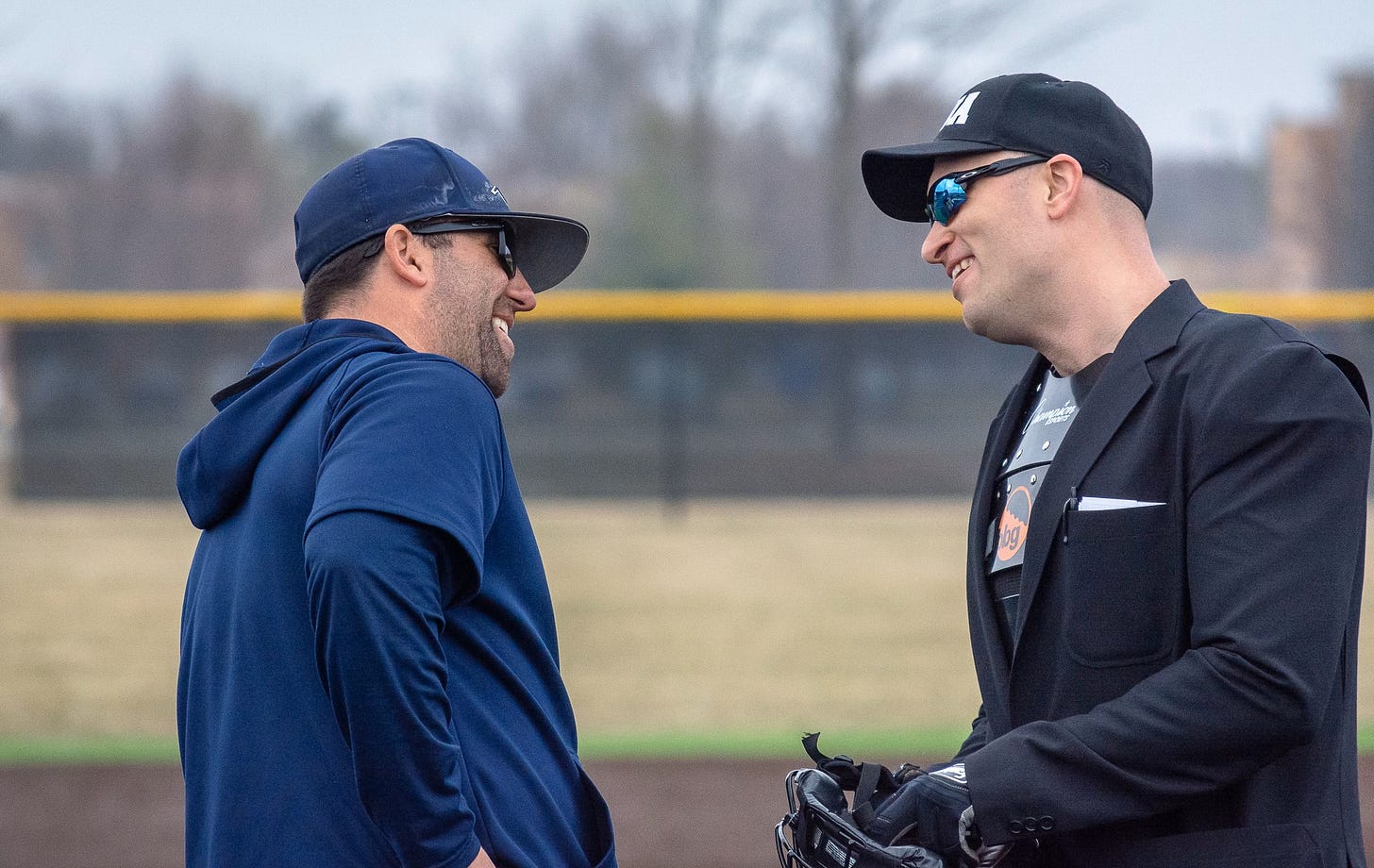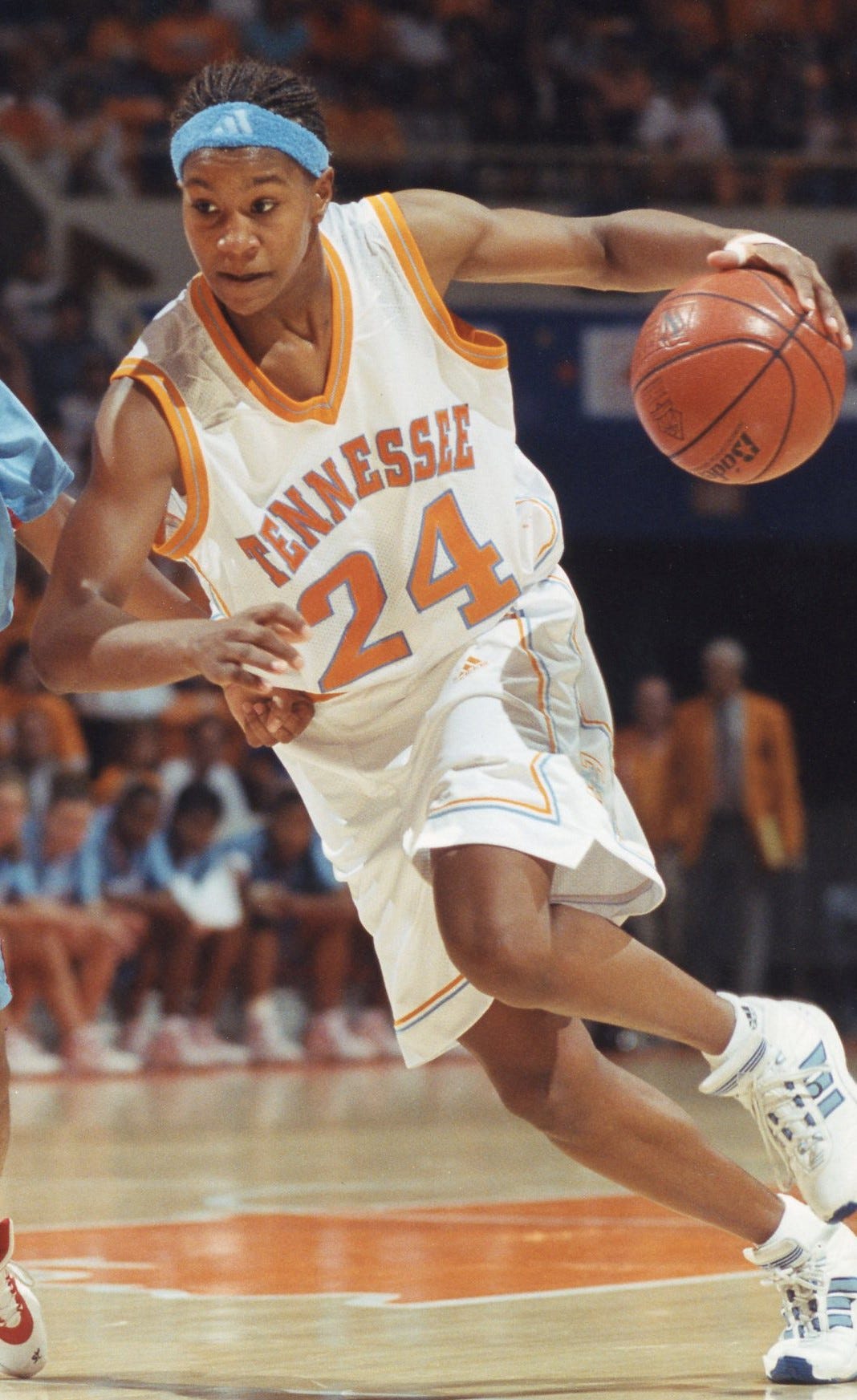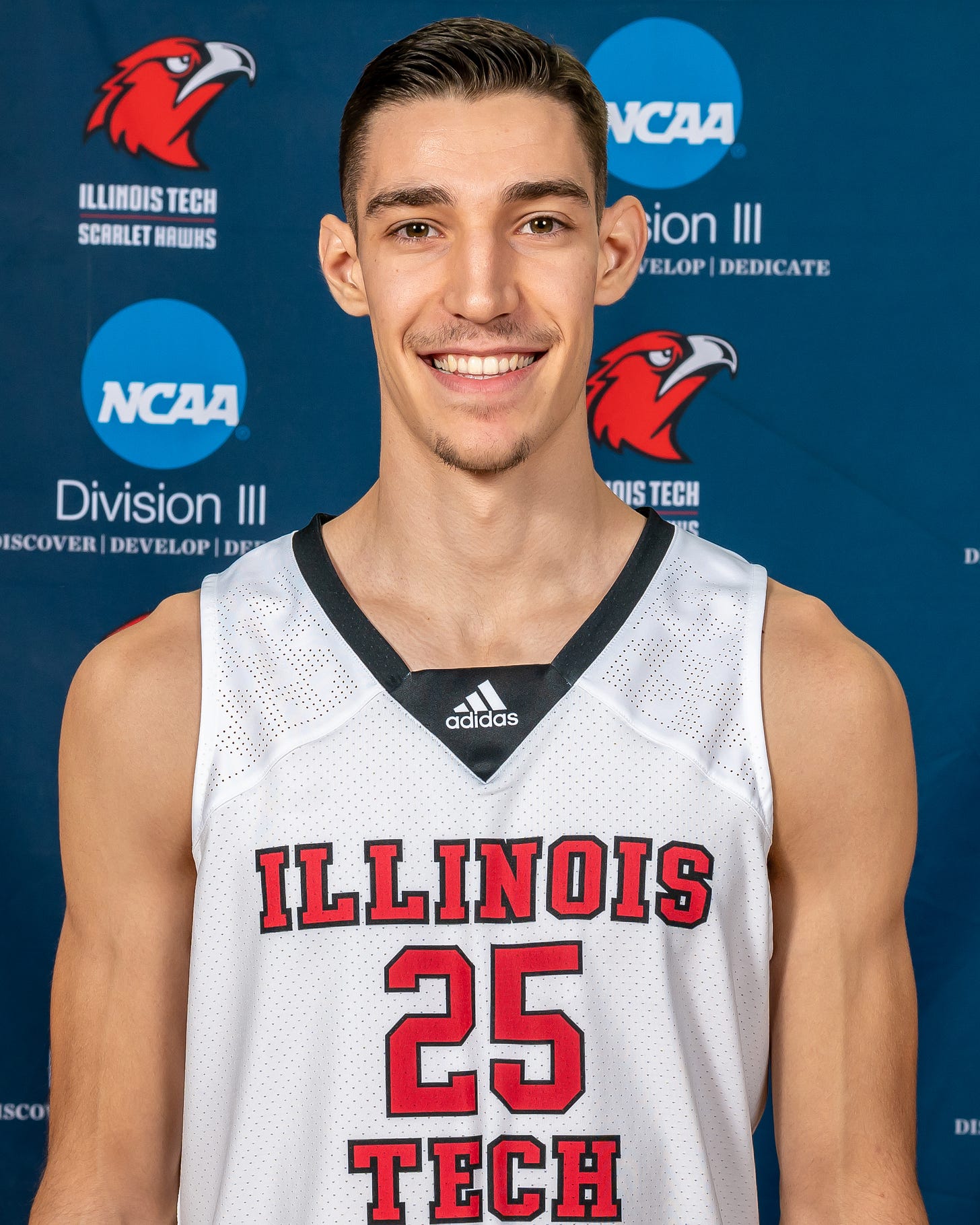MSL Baseball: Copeland Puts UIS on Division-II National Map
Ex-Elk Grove Star Leads NCAA's Fifth-Ranked Team; Beyna Back in Dugout at St. Viator
Ryan Copeland knew all about ISU, or Illinois State University, since he played and coached baseball there.
UIC, or University of Illinois Chicago, was familiar since it wasn’t far from where he grew up and starred in high school at Elk Grove.
What about UIS? Someone could have been talking about UPS for all Copeland knew.
“I had never heard of UIS until that summer,” Copeland said of the search for a full-time job eight years ago, after a season as an ISU student assistant coach while finishing his degree.
More and more people in baseball circles have heard of UIS, or the University of Illinois Springfield, since Copeland joined the staff in 2016 and became the head coach in 2020. The program earned its first NCAA Division II tournament berth in 2018, advanced to the national finals last season and is currently 13-5 and ranked 5th in the country by the National Collegiate Baseball Writers Association (NCBWA).
“It’s a great situation with great support and very talented players,” said Copeland, who is 108-28 since taking over at UIS. “We have a great pitching staff and we’ve been able to keep this thing rolling.”
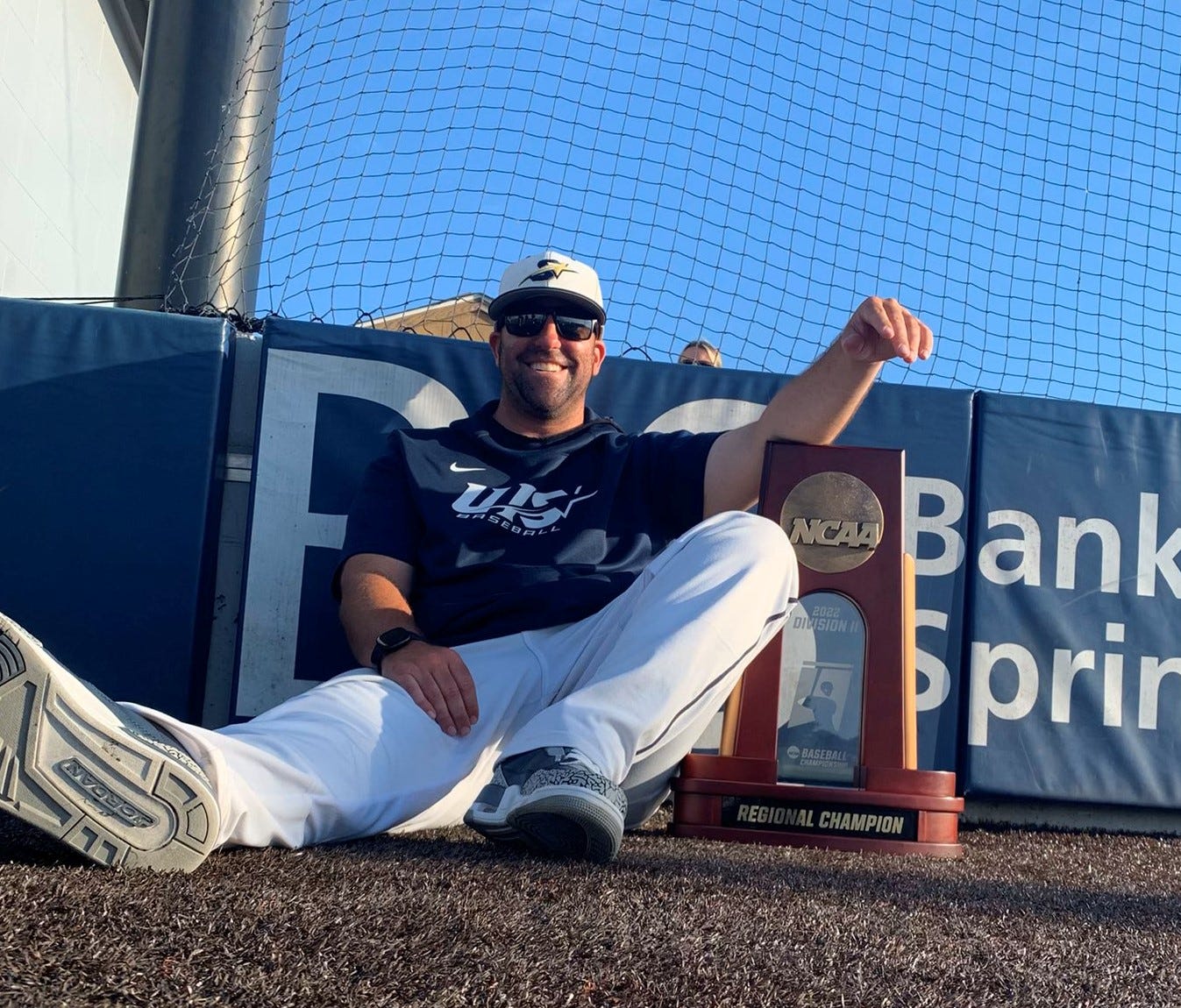
Copeland was the 2006 Daily Herald All-Area captain as a pitcher-outfielder when he led Elk Grove to its best season ever at 32-8 and a trip to the Class AA Elite Eight where he lost an incredible 1-0 quarterfinal duel to eventual state champion Naperville Central.
What Copeland is accomplishing in coaching is no surprise to Terry Beyna, who was Elk Grove’s head coach from 2000-19 and is in his first season as St. Viator’s head coach.
“A comment Ryan made to me when he was playing has stuck with me to this day and I already shared it with the kids at St. Viator,” Beyna said. “He said after a game, ‘I’m exhausted after games more mentally than I am physically.’ He totally understood the beauty of baseball, of in-between the pitch and the process of what could happen. He was a phenomenal baseball player but he had the mind to go with it.”
Copeland took those attributes to ISU, where the lefty was a four-year starting pitcher and two-time all-Missouri Valley Conference selection. He was chosen in the 32nd round of the 2010 Major League Baseball draft by the St. Louis Cardinals and went to Rookie ball. He earned Appalachian League Pitcher of the Year honors after he went 7-0 with a 1.86 ERA in 53⅓ innings at Johnson City (Tennessee).
Copeland wasn’t the only one who believed he was on track to follow in the footsteps of Dave Otto, who led Elk Grove to the 1982 Elite Eight and pitched in the big leagues for eight seasons (1987-94) with Oakland, Cleveland, Pittsburgh and the Cubs. In his second year in the Class A Midwest League Copeland went 4-4 with a 4.94 ERA.
Then, after 3 games and 2⅔ innings in A and Rookie ball in 2012, he was diagnosed with thoracic outlet syndrome, which is a group of disorders that occur when the blood vessels or nerves in between the collarbone and first rib are compressed. It causes shoulder and neck pain and numbness in the fingers. It also meant Copeland’s big-league dreams were finished.
“I believe if he didn’t get hurt he had a legit shot at being a lefty reliever who comes in and matches up with guys,” Beyna said.
Instead, Copeland had to change course and return to finishing the college courses he needed to get his degree.
“I knew all along I wanted to coach when someone told me I couldn’t play anymore, but I had to go back to school as a 10th- or 11th-year senior to get my degree,” Copeland said. “My dad (Tim) hounded me for years when I was with St. Louis to go back and get my degree. I was young, arrogant and I thought I was going to pitch in the big leagues. I got diagnosed with thoracic outlet syndrome and there you are. Your career is over and you need a degree.”
Copeland went back to ISU as a student assistant to learn the ropes of college coaching under Bo Durkac, who was one of Copeland’s coaches, and took 15 hours of classes each semester. He would go to practice and do a little of everything. Some days started at 6 a.m. and would end with a night class at 9 p.m. after a practice.
He joked that his classmates “know you’re not ‘old, old’ but they know you’re not college age.” He was excited about making $8,000 a year since that was a $3,000 raise from what he was making in minor league baseball and working with a team that included current St. Louis Cardinals shortstop Paul DeJong.
“Looking back you don’t know how you did it but you find a way to get it done,” Copeland said. “(Durkac) pushed me to get that (degree) done. I knew if I wanted to coach high-level college baseball I was going to need a degree.”
Copeland didn’t have any desire to go back to the pro game and he found certain aspects of college baseball, such as developing relationships and controlling your roster, more appealing than coaching in high school. A couple of players he coached in travel ball, Michael Rothmund (Willowbrook) and Adam Warda (Niles North), had committed to UIS and asked Copeland if he was interested in an open pitching coach job there.
He quickly learned what UIS was and that it was only an hour southwest of Bloomington-Normal on I-55.
“Chris Ramirez (head coach) offered me the job and gave me a lot of responsibility,” Copeland said. “I never envisioned I’d be here in year eight. It just happened that way. We’re learning how to win here and all of a sudden you look up and you’re the head coach.”
The UIS program won 30 games total in its first three years and Ramirez nearly matched that with 28 wins in his first season in charge in 2014. Steady progress continued to 47 wins and the first NCAA tourney trip in 2018 and 41 wins, a regional title and trip to the super regional in 2019. Copeland was doing what he enjoyed most, working with pitchers, when Ramirez took the job at Lenoir-Rhyne in North Carolina.
Copeland figured he would get the job even if it wasn’t necessarily his ultimate goal.
“Believe it or not I didn’t want to be a head coach,” Copeland said. “I was pretty adamant about that and sometimes I still struggle with it because at heart I’m a pitching guy. That’s what really fires me up and what’s my passion.
“That summer had a couple of D-I opportunities and one was exactly what I was looking for, but the opportunity to take over a top-25 Division II program and keep the ball rolling with the players we have was too much to pass up.”
It’s not as if the rest of the game is foreign to him. Copeland was an excellent two-way player at Elk Grove who made one of the best catches you would ever see by a high school outfielder when he made a long run and crashed into the fence in the Mid-Suburban East title clincher at Rolling Meadows.
But since his expertise is pitching, he made sure to hire former ISU standout Joe Kelch as an assistant to handle the offensive side of the game. The UIS facilities were “extremely lacking” according to Copeland when he arrived at the school but the improvement include a turf field.
His head coaching career got off to a strong start with a 10-4 record in 2020 when he received his first big challenge. The unexpected disruption and cancellation of the season from COVID and the aftermath that included situations such as players being vaccinated so they could play.
“I’ll never forget it, we were on the bus to southwest Missouri for a conference series against Southwest Baptist,” Copeland said. “Never in my wildest dreams would I have imagined what ended up happening would happen.
“When I told them I remember I had tears in my eyes that this was probably it. A couple of players came back for their fifth year but it wasn’t the same team. For a couple years after it was taxing mentally trying to run a college program as a young coach.”
His first full season as head coach in 2021 saw UIS go 37-8 and earn the No. 1 seed in the NCAA regional but get eliminated with two heartbreaking late-inning losses. That fueled a breakthrough 2022 with a 48-11 record, wins in the regional and super-regional and a trip to the eight-team D-II championships.
“It was just our time to go experience that and the players deserved it,” Copeland said. “They had been together three, four, five years. I had known some of these guys for seven or eight years through recruiting.
“In 2021 it was just baseball that got us. In 2022 we had a sense of urgency and our players understood this is it for this group. They embraced that pressure. Success continues to raise expectations and with that comes pressure but that’s a good thing.”
Copeland believes he was well-prepared to deal with all the challenges because of coaches at Elk Grove like Beyna, Don Spaniak and Rob Pomazak. Spaniak has been coaching high school baseball in Arizona since 2019 and Pomazak’s decade leading the St. Charles North football program includes a state runner-up finish in 2018.
“I owe a lot to coach Beyna, Spaniak and Pomazak,” Copeland said. “When I look back at high school and put myself in the shoes of a 16-year-old, I didn’t realize what I had until I got to college and pro ball and how much those guys cared about my development as a person and player. They were very committed to you and it was so special. I took it for granted.
“Coach Beyna and I didn’t always see eye-to-eye in high school and part of it was me being immature. Now realize how fortunate I was to have someone like him to lead our program. He prepared me for college baseball and pro ball. Rob was the energetic young guy you could joke around with and Spaniak would tell you like it is.
“Over the course of time in high school I began to realize how fortunate I was to be around such a high-level baseball person like coach Beyna. A lot of kids who come into our program weren’t that fortunate. A lot of things about baseball and life and how to treat people comes from him.”
Beyna said it’s gratifying to see how Copeland has achieved his success. And Beyna enjoys how he now has the opportunity to sit and talk baseball with Copeland at events like an American Baseball Coaches Association (ABCA) clinic.
“As a coach, he’s the kind of guy who I’d send my kid down to play for him. That’s how highly I think of him,” Beyna said. “He has that hunger to keep learning and growing as a coach. He has the same passion to keep seeking answers and improving himself.
“He knows how to treat kids. Everybody says, ‘Oh my gosh, the kids love Cope.’ Obviously he treats kids right and his consistency is what’s so impressive.”
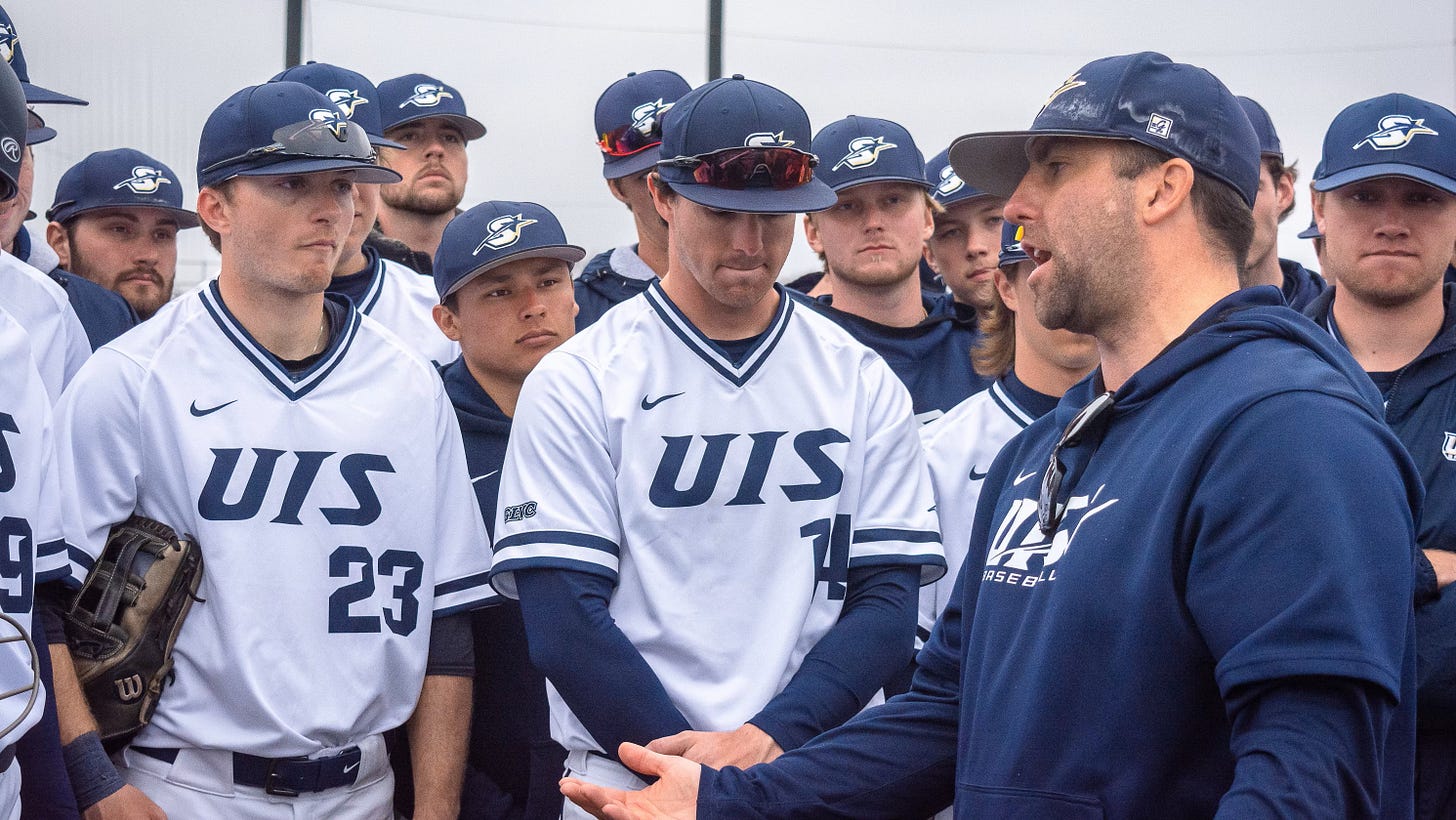
The next goal for Copeland and UIS is to go one step further than last year when it went two-and-out in the national tournament. But the goal is also to help individuals succeed like Hersey grad Quinn Gudaitis, a 6-foot-7 righty who transferred from D-III Illinois Wesleyan, became one of the leaders of the 2022 pitching staff and started his pro career after he was drafted in the 16th round by the Detroit Tigers.
It’s his way of sharing what he experienced with Billy Mohl, who was Copeland’s ISU pitching coach his senior year. Mohl, now the head coach at South Florida and who took the team to the D-I Super Regionals in 2021, sparked Copeland’s interest in coaching college baseball.
“He was a young guy and we were so close,” Copeland said. “We had great conversations and it felt like they were never about baseball. With how much he meant to me I knew I wanted to have that influence on younger pitchers.
“The best part is you’re around young, energetic kids. I love the college game and I love working with this age group. They’re so young and in some ways so immature but that’s what makes it so much fun.”
Beyna Back in the Dugout at St. Viator
Terry Beyna figured his days of worrying about cold and bad weather and all the other responsibilities of being a head baseball coach were over when he stepped down after a successful 20-year run at Elk Grove in 2019.
“I had no visions of getting back in as a head coach,” said Beyna, who is Elk Grove’s assistant athletic director. “I was content coaching my own kids.”
Beyna said he was in a “great situation” as an assistant coach for his daughter, a freshman softball player at Prospect, and his son Tanner, an eighth grader who plays baseball. Then Mike Manno stepped down after 16 years at St. Viator to become the athletic director at Nazareth Academy in LaGrange Park and encouraged Beyna to consider filling his old job.
Beyna did and now is gearing up for his first year in charge of the Lions. He will get to coach his son next year.
“I talked to my daughter about how it would be difficult to see her play, but it’s a chance to do what I do and share the experience with my son in high school,” Beyna said. “The kids here are wonderful and they’ve been very welcoming.”
Beyna, who played at Rolling Meadows and Illinois State and for seven years professionally, took a big rebuilding job at Elk Grove and went 354-322 with a Class AA Elite Eight appearance in 2006, 5 regional titles and 4 Mid-Suburban League titles. It’s a completely different situation at Viator as he inherits a program that was 35-3 last season and 336-251 under Manno with a 2017 Class 3A state title.
“What a perfect situation for him and his family to take over for the great things coach Manno did,” said UIS coach Ryan Copeland. “He’s such a high-level baseball person and I’m excited to see how he does with St. Viator.”
And Beyna found not much has changed during his three-year hiatus of leading a high school baseball program.
“Being a head coach hasn’t gotten easier since I left,” he said with a laugh.
Tamika Catchings Headed to National High School Hall of Fame
Tamika Catchings, whose legendary basketball career included two spectacular years at Stevenson, is part of the 2023 class of the National Federation of State High School Associations (NFHS) National High School Hall of Fame. The inductees include retired Chicago Bulls and NBA player Carlos Boozer.
In 1995, Catchings was a Stevenson sophomore and she led the school to its first of back-to-back Class AA titles and was voted Illinois Ms. Basketball before transferring to Duncanville (Texas) High School. Catchings’ older sister Tauja led Stevenson to a repeat title and won Illinois Ms. Basketball in 1996.
Tamika Catchings led Duncanville to a state basketball title in 1997 and was Miss Texas Basketball and the Naismith National Player of the Year. She was also part of a girls volleyball state championship team as a junior. Catchings went to Tennessee to play for the legendary Pat Summitt and led the program to an NCAA title as a freshman and a runner-up finish as a junior, when she was the Naismith College Player of the Year. She earned first-team Kodak All-America honors four times as the Lady Vols compiled a 134-10 record.
Catchings played 16 years with the Indiana Fever of the WNBA and is third on the league’s all-time scoring list and fifth in career rebounding. The 10-time WNBA All-Star and five-time WNBA Defensive Player of the Year helped the Fever win the 2012 WNBA title. She played on four Olympic Gold-medal winning teams and has been named to the Naismith Memorial Basketball Hall of Fame, Women’s Basketball Hall of Fame, Illinois Basketball Coaches Association Hall of Fame and Indiana Basketball Hall of Fame.
Carlos Boozer was one of the top athletes in Alaska history and led Juneau-Douglas High School to two state championships and was a two-time Parade All-American and Gatorade Player of the Year. He led Duke to the 2001 NCAA title, was an Olympic Gold-medal winner and two-time NBA All-Star. He averaged 16.2 points and 9.5 rebounds in his NBA career and 15.5 points and 9 rebounds in four seasons with the Bulls (2010-14).
Catchings, Boozer and 10 other honorees will be inducted July 1 at the 40th induction ceremony of the National High School Hall of Fame during the NFHS Summer Meeting in Seattle.
Longtime Daily Herald, Tribune Sportswriter Heads to Hall of Fame
Bob “Lefty” Logan, who spent most of his sportswriting career in Chicago with the Daily Herald and Chicago Tribune, will be among seven inductees into the U.S. Basketball Writers Association (USBWA) Hall of Fame.
Logan was regarded as one of the most prominent basketball writers in the Midwest during his career of 40-plus years. He covered the Chicago Bulls and colleges for the Tribune and concentrated on college sports when he came to the Daily Herald in the late 1980s. The Philadelphia native also wrote for the Philadelphia Inquirer, the Levittown Times and the Illinois State Journal. He wrote eight sports books and for 25 years created an annual basketball summary for Encyclopedia Britannica.


Logan passed away in 2006 at age 74.
The other USBWA Hall of Fame inductees include Seth Davis of CBS Sports and the Athletic, the late Grant Wahl of Sports Illustrated, CBS Sports and FOX Sports and Lesley Visser of the Boston Globe and CBS Sports. The induction ceremony will be held March 31 at the USBWA Awards Brunch in Dallas.
Dugalic Shines In D-III All-Star Game
Illinois Tech senior and 2018 Maine West grad Milos Dugalic made the most of his opportunity to play in the Reese’s Division III All-Star Game on Saturday in Fort Wayne, Indiana. The 6-foot-9 Dugalic had a double-double with 18 points and 10 rebounds in nearly 25 minutes of playing time as his team won the game 116-112.
Dugalic shot 8-for-15 from the field and 2-for-5 from 3-point range. He also had 2 assists and 2 steals. Dugalic won an on-line fan vote to be among the 18 participants in the game.




